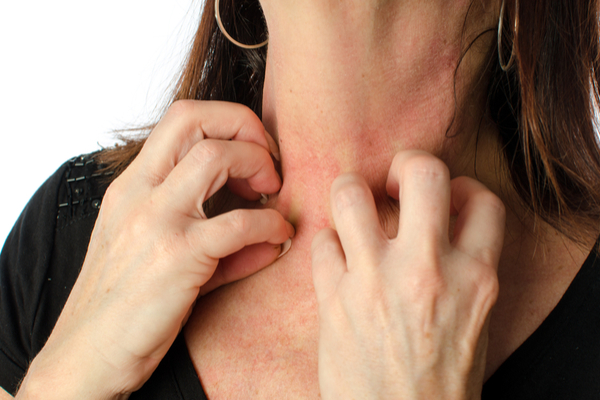The biologic medicines ligelizumab (72 or 240 mg) and omalizumab (300 or 600 mg) can be suggested as effective therapies for chronic spontaneous urticaria (CSU) that is not controlled by H1 antihistamines. The findings were reported in the journal JAMA Dermatology. Chronic spontaneous urticaria (CSU) is a kind of autoimmune condition. Therapy is frequently challenging, although the initial approach necessitates the use of high-dose non-sedating antihistamines. No study has been able to produce a comprehensive evaluation of the advantages and risks of all known therapies for persistent spontaneous urticaria caused by H1 antihistamines.
Surapon Nochaiwong, Chiang Mai University, Chiang Mai, Thailand, and colleagues, therefore, aimed to evaluate different treatment effects of pharmacologic treatments among patients with H1 antihistamine–refractory CSU.
The researchers explored internet databases from conception until April 19, 2021 for this aim. It comprised randomised controlled studies (RCTs) that looked at the benefits and risks of pharmacologic therapies in adolescent or adult CSU patients. who had an insufficient reaction to H1 antihistamines were independently assessed for inclusion by two investigators
There were 23 randomised clinical studies with a total of 2480 individuals that evaluated 18 different treatments or doses with placebo.
The results of the study were:
- The standardized mean differences for change in urticaria symptoms were −1.05 for ligelizumab, 72 mg;−1.07 for ligelizumab, 240 mg;−0.77 for omalizumab, 300 mg;and −0.59 for omalizumab, 600 mg.
- No significant differences in treatment unacceptability were observed.With respect to benefits and harms, the network estimates illustrated that the most efficacious treatments were achieved with ligelizumab, 72 or 240 mg (large beneficial effect), and omalizumab, 300 or 600 mg (moderate beneficial effect).
Nochaiwong and the team concluded that “The findings in this meta-analysis suggest that the biologic agents ligelizumab, 72 or 240 mg, and omalizumab, 300 or 600 mg, can be recommended as effective treatments for patients with CSU who have had an inadequate responseto H1 antihistamines. Head-to-head trials with high methodologic quality and harmonized design and outcome definitions are needed to help inform subsequent international guidelines for the management of CSU.”





